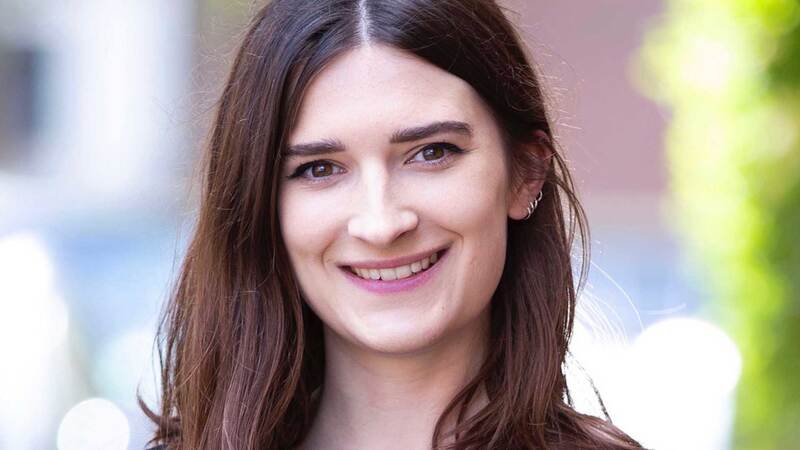You are viewing your 1 free article this month. Login to read more articles.
International Booker Prize scooped by French writer David Diop
At Night All Blood is Black (Pushkin Press) by David Diop, translated by Anna Moschovakis, has won the £50,000 International Booker Prize, making Diop the first French author to win the award.
Chair of judges Lucy Hughes-Hallett announced the winning novel during a virtual celebration from Coventry Cathedral, which was livestreamed via Facebook and YouTube. She said: "This story of warfare and love and madness has a terrifying power. The protagonist is accused of sorcery, and there is something uncanny about the way the narrative works on the reader. We judges agreed that its incantatory prose and dark, brilliant vision had jangled our emotions and blown our minds. That it had cast a spell on us."
At Night All Blood is Black is Diop's second novel. It was shortlisted for 10 major prizes in France and won the Prix Goncourt des Lycéens, as well as the Swiss Prix Ahmadou Korouma. It is currently being translated into 13 languages, and won the Strega European Prize in Italy. The book portrays a young man's descent into madness and tells the little-heard story of the Senegalese who fought for France on the Western Front during the First World War.
Protagonist Alfa Ndiaye and his friend Mademba Diop are two of the many Senegalese tirailleurs fighting in the First World War under the French flag. Whenever Captain Armand blows his whistle they climb out of their trenches to attack the blue-eyed enemy. But one day Mademba is mortally wounded, and without his friend, his more-than-brother, Alfa is alone amid the savagery of the trenches, far from all he knows and holds dear. He throws himself into combat with renewed vigour, but soon begins to scare even his own comrades in arms.
The New York Times described the novel as "more than a lone man’s spiritual burden. Diop realises the full nature of war—that theatre of macabre and violent drama—on the page. He takes his character into the depths of hell and lets him thrive there".
Diop was raised in Senegal and now lives in France, where he is a professor of 18th-century literature at the University of Pau. He said he took inspiration for the novel from his Senegalese great-grandfather’s silence about his experiences in the First World War.
Translator Anna Moschovakis (pictured, right) is also a poet and author, whose works include the James Laughlin Award-winning poetry collection You and Three Others Are Approaching a Lake (Coffee House Press) and a novel, Eleanor: or, The Rejection of the Progress of Love (Coffee House Press). Her translations from French include Albert Cossery’s The Jokers (NYRB Classics), Annie Ernaux’s The Possession (Seven Stories Press), and Bresson on Bresson (NYRB). The prize money is split between author and translator, giving both equal recognition.
At Night All Blood is Black was chosen from a shortlist of six books during a "lengthy and rigorous" judging process, with a majority decision by a panel of five judges. As well as chair Hughes-Hallett, the panel included journalist and writer Aida Edemariam; Booker-shortlisted novelist Neel Mukherjee; Professor of the History of Slavery, Olivette Otele; and poet, translator and biographer George Szirtes.
This year the judges considered 125 books. The winner was picked from a shortlist featuring The Dangers of Smoking in Bed by Argentinian author Mariana Enríquez, translated from Spanish by Megan McDowell (Granta Books); When We Cease to Understand the World by Chilean author Benjamín Labatut, translated from Spanish by Adrian Nathan West (Pushkin Press); The Employees by Olga Ravn, translated from Danish by Martin Aitken (Lolli Editions); In Memory of Memory by Maria Stepanova, translated from Russian by Sasha Dugdale (Fitzcarraldo Editions); and The War of the Poor by √âric Vuillard, translated from French by Mark Polizzotti (Picador).















